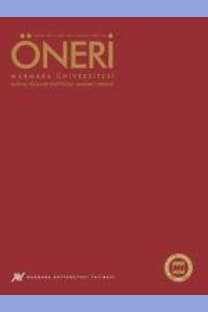KARA PARA AKLAMA VE ULUSLARARASI MALİ SİSTEM
Kara para aklama, Küreselleşme, Uluslararası mali sistem
___
- [1] -Wılliam C.Gİlmore. Dirty Money, The Evolution of Money Laundering Counter-Measures (Counal ou Europe Press: 1994).
- [2] -"The Report on the meesurement of International Capital Flaus" (IMF, September 1992) s.89-95
- |3]-Money Laundering, U S. Eflorts Tofıght It D.re Threatened by Lurrencv Sımıggling, March 1994 s. 3.
- |4] J-Richard Porter. "Torcıgn holdings sf U.S. (Urrencv"
- |5]-The Bank of Credıt and Commerce Intemational'm (BCCI) deneyi Merkez Bankalarının denetim rolünün etkinliği hakkında bazı soruları gündeme getirdi.
- [6]-Gary Becker, "Criıııe and Punismand s.An Economic Approcech, "Journal of Political Economiy, Vol.76. No:2, 1968 s. 169-217 *
- ISSN: 1300-0845
- Yayın Aralığı: Yılda 2 Sayı
- Başlangıç: 1994
- Yayıncı: Marmara Üniversitesi
TÜRKİYE'DEKİ GELİR KONSANTRASYONUNUN VE DAĞILIMININ İNCELENMESİ
LİSE COĞRAFYA DERS KİTAPLARININ SEÇİMİNDE ETKİLİ OLAN HUSUSLAR
AVRUPA MERKEZ BANKASI VE AVRUPA BİRLİĞFNDE FİYAT İSTİKRARI
KADIN ÇALIŞMALARI İÇİN UYGULAMALI BİR ARAŞTIRMA ALANI: TOPLULUK TEMELLİ SAĞLIK HİZMETLERİ
DAĞITIM KANALLARINDA GÜÇ VE GÜÇ İLİŞKİSİ
Tuncay KOCAMAZ, Serdar PİRTİNİ
SÜRDÜRÜLEBİLİR KALKINMA VE İŞLETMELERİN ROLÜ
İNGİLTERE VE TÜRKİYE’DE FIRSAT EŞİTLİĞİ
Diana WOODWARD, Fatih ÖZBİLGİN
ORGANİZASYONLARDA ÖDÜL SİSTEMLERİ VE YÖNETİMİ
